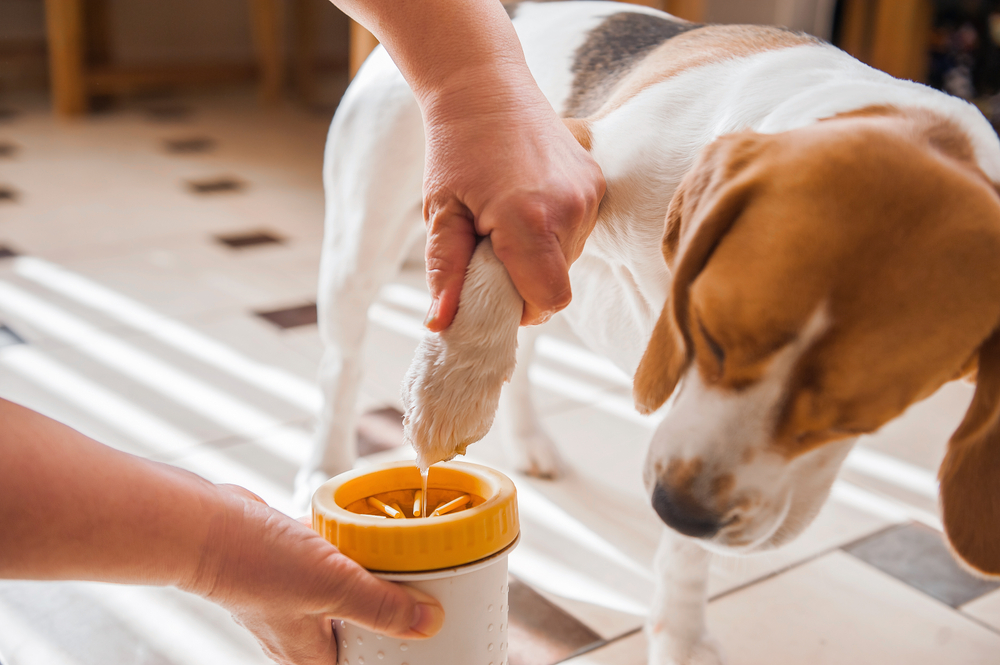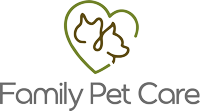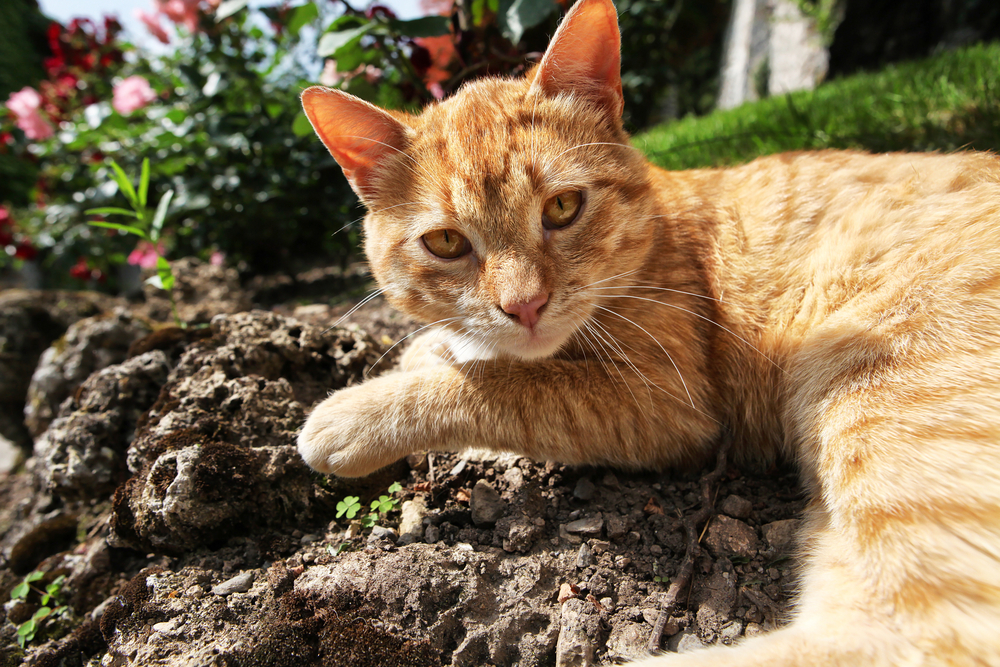As a pet owner, you know how much your furry friend enjoys digging, rolling, and playing in the dirt. These are natural activities that provide physical and mental stimulation, but dirt harbors numerous hidden dangers that can risk your pet’s health. Understanding and knowing how to mitigate these risks is crucial for keeping your four-legged friend safe and healthy. Our Family Pet Care team outlines the various hazards lurking in the dirt and offers tips on protecting your pet while they enjoy their outdoor adventures.
Common pet hazards found in dirt
A multitude of hazards, from parasites to chemicals, lurk in the soil that can harm your pet. Here are some of the most common dangers your furry friend may encounter:
- Intestinal parasites — Various intestinal parasites are deposited in the soil in the feces of infected pets and wildlife. Your pet can contract roundworms, hookworms, Toxoplasma gondii, and other parasites through accidental ingestion, by licking their paws or eating the infective feces. Intestinal parasite infections can lead to diarrhea, vomiting, weight loss, lethargy, and a failure to thrive. Additionally, many intestinal parasites can be passed from pets to people, so they are a serious concern for every household member.
- Bacteria — The most common bacterial pathogens your pet may come across in the soil include Leptospira spp., Salmonella, and E.coli. Leptospira spp. are found in contaminated water and soil and can infect pets through mucous membranes or open wounds and cause kidney and liver failure. Salmonella and E. coli can be present in soil contaminated with feces. Pets who ingest these bacteria can suffer gastrointestinal (GI) distress, dehydration, and other severe systemic infections.
- Viruses — Viruses can survive in the soil for long periods under the right conditions and cause infections, such as parvovirus and distemper, long after an infected animal deposits viral pathogens on the dirt. Pets can contract viral infections when they contact the contaminated dirt and suffer vomiting, diarrhea, dehydration, respiratory problems, and neurological dysfunction.
- Fungal spores — Fungi like Blastomyces dermatitidis and Histoplasma capsulatum thrive in moist, organic-rich soil, especially in dirt contaminated with bird and bat droppings. When these fungal spores are stirred up, a pet who inhales the spores can contract a respiratory infection that may spread to other body parts and cause persistent diarrhea, draining skin lesions, eye infections, and joint pain.
- Chemical contaminants — Various chemicals used in gardening and lawn care can be toxic to pets if ingested or absorbed through the skin, causing vomiting, diarrhea, seizures, and in severe cases, death. Soil can also be contaminated with heavy metals like lead and mercury that can cause pets neurological issues, kidney damage, and other health problems.
- Plant toxins — Certain plants and their debris, such as oleander, sago palm, and lilies, can be toxic to pets if ingested. Plant poisoning signs can range from mild GI upset to severe organ damage.
- Physical hazards — Broken glass, metal scraps, and sharp rocks can cause cuts, puncture wounds, and infections, while thorns and splinters can be embedded in your pet’s skin.
Soil safety tips for pet owners

Your four-legged friend can still dig and play in the soil, but keep them safe with the following precautions:
- Regular veterinary visits — Keeping your pet current on vaccinations can protect them against bacterial and viral infections, while fecal exams can help detect parasitic infections early, so they can be treated before they become severe.
- Parasite prevention — Use quality parasite preventives recommended by your Family Pet Care veterinarian to significantly reduce the risk of parasite infestations and the diseases they carry.
- Hygiene practices — Bathe your pet regularly and clean their paws after they’ve been outside to help remove any contaminants. Also, wash bedding and toys frequently to prevent dirt and parasite build-up.
- Training — Train your pet to avoid certain areas and discourage them from ingesting soil, plant matter, stagnant water, or small animals. Commands like “Leave it” can be particularly useful.
- Environmental control — Keep your yard well-maintained by promptly removing any animal waste, which can contaminate the soil with harmful bacteria and parasites. Use pet-safe gardening products and avoid using harmful chemicals in your pet’s areas.
By understanding the potential hazards hiding in the soil, you can better protect your four-legged friend from dirt-borne dangers. Protect your pet against intestinal parasites, viruses, and bacteria by scheduling preventive wellness care with our Family Pet Care team.

